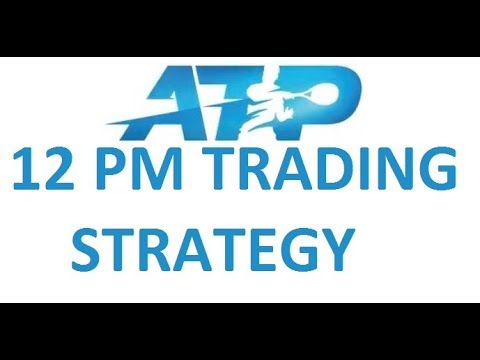

Management by objectives is a strategic management model that aims to improve the performance of an organization by clearly defining objectives that are agreed to by both management and employees. Depending on the dimensions of the acquisition, debt in addition to equity could be supplied by multiple party. Intensive discussions would help delegates decode the strategic viability of M&A, its competitive advantage and alignment of M&A strategy with the organization goals. Unicorpse – It is one of the current buzz word in the startup world.
What is LBO vs MBO vs MBI?
A Buy-In Management BuyOut (BIMBO) is a form of a leveraged buyout (LBO) that incorporates characteristics of both a management buyout (MBO) along with a management buy-in (MBI). A BIMBO occurs when existing management along with outside managers decide to buy out a company.
This is a more specific form of a leveraged buyout , which is a transaction that involves a business being purchased with a combination of equity and debt with the cash flow used as collateral to secure and repay the funding. In a typical leveraged transaction, the funding by the bank, the purchase of the assets, and creation of securities would be structured to occur simultaneously. So, in that sense, the bank would not be funding before receiving security.
Leveraged buyouts use large sums of borrowed money, with the company’s purchased assets being used as collateral for the loans. Just 10 per cent of the funding can be raised by the organisation conducting the LBO, with the remainder funded by debt. The most significant disadvantage of such a buyout is the increase in debts. A leveraged buyout is only successful if the debt is paid timely.
India Dictionary
An exclusive retail store maintains uniformity in store design, interiors, products, store size, promotions undertaken, and its product pricing. This prevents harsh competition among exclusive store retailers, giving them a fair chance of profits. difference between lbo and mbo Retailers more often prefer multi brand options because they get the freedom choose and decide. In exclusive formats, retailers lose their freedom as they will have to abide the vendor guidelines such as fixed set of promotions for a year.
The book also spends too much time on super basics, even on “F2” key in excel. PE/VC, Debt Syndication/ECB Birla Financial has a strong track record in PE, VC Debt Syndication and relationships with a large number of financial sponsors, along with the expertise to manage processes efficiently. We at Birla Financial, offer a wide product suite to address the needs of organizations throughout the product life-cycle & business cycle. Business cycle is basically defined in terms of periods of expansion or recession. During expansions, the economy is growing in real terms (i.e. excluding inflation), as evidenced by increases in indicators like employment, industrial production, sales and personal incomes. Financial backers of Dell are of the view that it will be easier to engineer a turnaround without having to pander to the stock market’s fixation on whether the company’s earnings are growing from one quarter to the next.
What is the difference between LBO and acquisition?
However, a leveraged buyout differs from a typical corporate purchase in two primary ways. An LBO involves a higher debt-to-equity ratio than most ordinary corporate acquisitions. An LBO secures the acquisition debt with the acquired company. This is the defining feature of an LBO.
Debt dominated capital structure In the capital structure of an LBO firm, debt is the major constituent. LBOs need companies to reserve some of their incoming cash to reduce the debt taken on as part of the process of going private. Other options include owner/seller financing, private equity financing, and mezzanine financing. The key to a successful MBO is the management team securing funding for the transaction. Management teams will rarely have the financial resources to buy the company outright, which is why pooling resources and securing funding is so important with amanagement buy out.
Burlington Hours 101: What Time …
The Indian company to facilitate the debt service pays dividends/ sells shares for a buyback. In larger transactions, debt is usually syndicated, meaning that the financial institution who arranges the credit score sells all or part of the debt in items to other banks in an try and diversify and hence scale back its danger. Another form of debt that is used in LBOs are seller notes in which the seller effectively uses elements of the proceeds of the sale to grant a mortgage to the purchaser. Such seller notes are often employed in management buyouts or in conditions with very restrictive financial institution financing environments.
This led to the need for improvised techniques and ways of corporate restructuring with innovative methods, mobilizing funds in creative ways. Leveraged buy-outs evolved due to financial engineering which indeed was the end result of these acquisitions and mergers in the USA. In the Indian context, LBOs are not a preferred route for corporate restructuring on the national level plank. Indian companies prefer LBOs for international acquisitions.
PMO Vs. Project Management: Whic…
Often the financing needed for an MBO is very substantial, and is typically a mixture of debt and equity originating from sellers, financiers, and sometimes the seller. For example, Company XYZ is a publicly traded company where management controls 30% the company’s stock and the remaining 70% is stock floated to the public. In order to finance their venture, the management group may look to a bank or venture capitalists to assist them in financing the acquisition.
SPA provides expert financial advisory services to clients considering a leveraged buyout, management buyout, or reorganization. SPA’s priority is to optimize transaction structure and coalesce around our clients’ strategic objectives and operational goals. Management Buyouts also referred to as MBO, refer to a situation when the managers and/or executives of a company purchase a controlling interest in the business from existing shareholders.
Is MBO a leverage buyout?
An MBO transaction is a type of leveraged buyout (LBO) and can sometimes be referred to as a leveraged management buyout (LMBO). In an MBO transaction, the management team believes they can use their expertise to grow the business, improve its operations, and generate a return on their investment.
The strategic means by which a private equity fund liquidates its stake in a business and achieves optimal returns. There are multiple exit routes, including Acquisition, Company Buyback, Initial Public Offering, Secondary Purchase and Write-off. The establishment of control in one business entity by another, often with the assistance of private equity. Third party acquisition is a common Exit Mechanism for private equity funds.
Loading a target company with the debt used to acquire it requires careful judgement, and getting the balance right between debt-load and future performance can be a demanding challenge. The financial analyst’s role therefore sits at the heart of a successful leveraged buyout. It is his or her analysis of a target company and a prospective LBO which lays the foundation for a viable deal – or alerts parties to potential problems.
Dell’s Leveraged Buyout: A Real-life Case Study
Calculated by dividing the gross dividend by the share price and expressed as percentage. It shows the annual return on an investment from interest and dividends, excluding any capital gain element. A financial instrument with qualities of both debt and equity, often used in transactions as an alternative, or complement to, pure equity. The provision of capital to entrepreneurs in multiple installments, with each financing conditional on meeting particular business targets.

10 promoters may get management and decision making position into company. LBO offers quantum of cash receipt on the sale of the company. The whole process must end into formulating a strong and successful company possessing profitability, liquidity and lucrative core business. Possibility of abundant profitability in the future with respect to the capacity and capability of the target company.
PE, VC Syndication is a complex process that’s frequently drawn out over months and involves multiple stages of deal management. Management buyouts can be preferable to a trade sale and management teams can often take the reins with minimal disruption, but these can be complex and expensive transactions so it is important to know what to expect with an MBO. There are many options for this, including debt financing where the management team will have to spend a large amount of capital with a bank lending the remaining portion required. For firms such as KKR, Providence and Apax, the opening up of the Indian and other emerging Asian markets offers an attractive alternative to their traditional markets. Returns in traditional markets have begun to taper off and many of these firms have also come under intense criticism for their aggressive buyout and the so-called asset-stripping practices. Yet, these firms come to the country two to three years after peers such as Blackstone, Carlyle Group Llc., Temasek Holdings Pte.
The marketing of a venture capital fund or public offering to potential investors. A structure whereby the eventual equity allocations between the groups of shareholders depend on either the future performance of the company or the rate of return achieved by the private equity firm. In such deals, a large portion of the cost of acquiring a company is financed by debt. The PE investor will normally bring in the 30% equity and leverage the company’s assets as collateral to raise the remaining 70% from the debt markets. For buyouts to take off, a couple of factors need to be in place.
Any type of acquisition aims at creating synergy by acquisitions or takeover of another company. This type of buyer is a strategic buyer and finances the purchase through company cash, company stock as well as some percentage of debt. In this structure, manager M will set up a special purpose company M Co. This new company M Co will acquire the business undertaking of company T, for which purpose M Co. will obtain financing from bank B. As security for repayment of the loan, M Co. will secure the assets of the business it acquired from T, which after the acquisition now belongs to M Co. itself. There is no prohibition in respect of such transactions as there is no ‘financial assistance’ for the purpose of acquisition of ‘shares’.
Corporate Structured Finance
The firm consequently does not receive the proceeds from the sales of these shares. NPV is a standard method in the planning of long-term investments. Using the NPV method a potential investment project should be undertaken if the present value of all cash inflows minus the present value of all cash outflows is greater than zero. A key input into this process is the interest rate, or “discount rate” which is used to discount future cash flows to their present valoues. The strategic combination of one business entity with another, often with the assistance of private equity.
While most other jurisdictions have been progressively liberalising their laws to permit leveraged transactions , the Indian law has remained constant over the years without any indication of change in the near future. However, in the event of any lapses in execution, the companies may have to bear very high costs and it can even adversely pose a threat to their existence. Moreover, penalties for non-compliance may also be steep & so, time bound would be is essential.
- Stores like Lifestyle, and Shoppers Stop etc are gaining more popularity with the consumers.
- Corporate restructuring primarily entails any fundamental change in a company’s business while financial restructuring relates to improvements in the capital structure of the organisation.
- LBOs need companies to reserve some of their incoming cash to reduce the debt taken on as part of the process of going private.
- These retailers get very little footfall, and are lost out on customers who seek options of similar brands.
The professional manager of a private equity fund or funds. The pool of capital established for the purposes of private equity activity. Often a Management Company will be responsible for several funds that may vary according to mandate or investment period. In a public market context, the percentage of the company’s shares that is in the hands of outside investors, as opposed to being held by corporate insiders. For example, to finance increased production capacity, product development, marketing and to provide additional working capital. A round of financing where typically new investors purchase stock from a company at a lower valuation than the valuation placed upon the company by earlier investors.
What is the difference between MBO and LBO?
A leveraged buyout (LBO) is when a company is purchased using a combination of debt and equity, wherein the cash flow of the business is the collateral used to secure and repay the loan. A management buyout (MBO) is a form of LBO, when the existing management of a business purchase it from its current owners.
